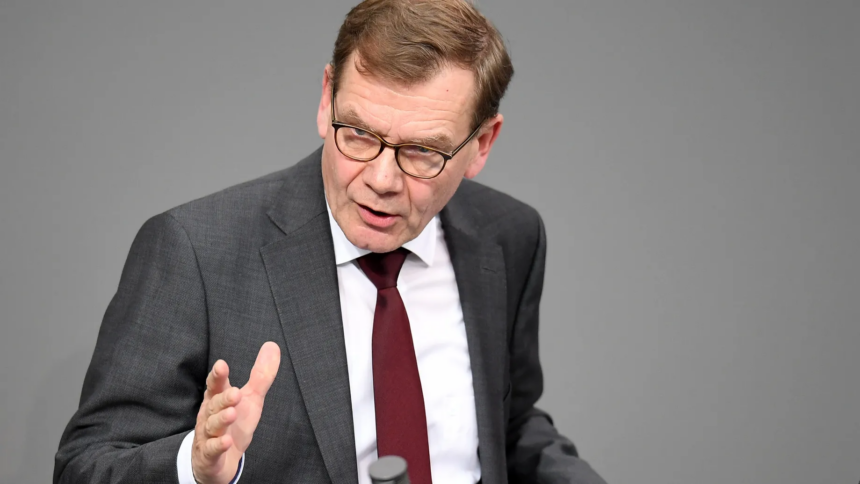RASC News Agency: Germany’s Interior Minister, Alexander Dobrindt, has publicly revealed in a parliamentary session that the country’s previous administration engaged in six covert rounds of dialogue with Taliban officials in Kabul between 2021 and 2025. The disclosure has sparked a storm of debate in Berlin, laying bare the contradictions in Europe’s dealings with a regime internationally denounced for repression, extremism, and systematic human rights violations.
Dobrindt’s statement came after members of the Green Party accused him of “collaborating with the Taliban” to expedite the deportation of Afghanistani migrants. In defense, the minister countered that speaking with the Taliban had been a ‘practical compulsion’, insisting that the practice was neither new nor unique to the current government. He underscored that Annalena Baerbock’s Foreign Ministry under the previous coalition had quietly entered into six secretive meetings with the group, despite publicly posturing as critical of Taliban rule.
The interior minister went on to confirm that the current German government is now preparing for fresh negotiations with Taliban envoys, to be held both in Doha and in Kabul itself. The purpose, he said, is to enable the deportation of Afghanistani migrants on commercial flights, a strategy Berlin views as cheaper and more discreet than organizing special charter operations.
Last month, under a Qatar-brokered arrangement, Germany forcibly returned 81 Afghanistani migrants to Kabul the first openly acknowledged instance of collaboration with the Taliban on deportations. Officials have since declared plans to expel more than 10,000 additional migrants, a project that the government argues cannot be carried out without formalized coordination with Taliban authorities.
Yet critics point out the troubling irony: Europe, which once vowed never to legitimize the Taliban’s violent seizure of power, is now edging into routine administrative deals with the very group it condemns for mass repression.
Analysts argue that the Taliban is weaponizing Afghanistani migration as a political lever, using deportations as a means to demand recognition and extract concessions from European capitals. By forcing governments like Germany, Austria, and Switzerland into negotiations, the group seeks to transform displaced Afghanistani citizens people driven into exile by its own brutality into bargaining chips for international legitimacy.
The consequences of bypassing such coordination were demonstrated recently when Switzerland attempted to deport a single Afghanistani migrant without Taliban involvement. Upon arrival in Kabul, Taliban officials rejected the deportee and forced him back onto the outbound aircraft. The episode underscored that without Taliban consent, deportations are not only diplomatically unviable but practically impossible, leaving European governments trapped in a paradox of their own making.
Experts warn that unless the European Union establishes a unified, coherent strategy toward the Taliban, the issue risks escalating into a broader crisis in relations between Kabul and European capitals. For many observers, the affair highlights Europe’s deep vulnerability: on one hand, governments remain publicly committed to isolating the Taliban for its medieval governance, gender apartheid, and sponsorship of extremism; on the other, they quietly negotiate with the regime in order to enforce domestic migration policies.
This duality, analysts say, plays directly into the Taliban’s hands granting the group precisely the transactional legitimacy it craves, while leaving European democracies morally compromised. For Afghanistani migrants, meanwhile, the consequences are devastating: their fate is being decided not by humanitarian principles, but by the cynical power games of a militant group that continues to govern through fear, repression, and international blackmail.






